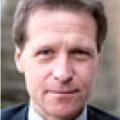THE UK is more regionally divided than ever, despite the Government’s levelling up pledges, a leading think-tank for the North of England states today.
In what it describes its “landmark” State of the North report, IPPR North claims that despite its “rhetoric”, Government policy has so far, “undermined the levelling up agenda.”
IPPR North said its research reveals “a gulf” between levelling up promises and policy reality.
But the Government department overseeing levelling up described the IPPR claims as, “misleading”, stating that they focus on only one area of investment to the North.
The Department for Levelling Up, Housing and Communities (DLUHC) said other new investment programmes have provided more than £110 billion funding on top of the £4.8 billion Levelling Up Fund.
It was responding to the IPPR’s report findings, published today.
The 18-year-old study group, with bases in Newcastle and Manchester, said its annual ‘health-check’ of the North’s economy, unveils, “stark results”.
It said the 2021 allocations of the Government’s Levelling Up Fund amounts to an investment of £32 per person across the North, compared to a £413 per person drop in in annual council service spending in the North, and a fall of £388 across England, generally.
The report claims public spending is concentrated in central government, with 96p in every £1 paid in tax taken by Whitehall, compared to 95p in 2018/9, while for every job created in the North, just under three were created in London and what it terms, “the Greater South East”.
It also states that in work poverty has risen in the North from 3.4m people in 2009/10 to 3.5m in 2019/20.
IPPR North said its ‘levelling up promises tracker’ has found many Government pledges have either been broken, scaled back or represent a reduction to other pots of funding they replace.
The report said: “This has had consequences for vital areas, including jobs, net zero and education and skills, and could undermine political trust and participation.”
Despite some of the negative findings, it believes the North is, “demonstrating its potential”, with local people, communities and leaders doing what is needed to level up, generating 51-per cent of England’s renewable energy, as an example.
But it adds: “The region’s full potential can only be realised when central government is willing to devolve power to, and collaborate with, empowered regional and local government, and communities.”
IPPR North’s interim director, Arianna Giovannini, said: “Two years on from the promise to level up the country, government’s rhetoric has reached fever pitch, but in reality, they have once again over-promised and under-delivered on rebalancing our economy.
“To succeed in levelling up, enabling people everywhere to live a good life, it will be necessary to build an economy hardwired for widespread prosperity, that powers the net zero transition, and provides everyone with access to high quality lifelong education.”
She called for, “broadening and deepening devolution, and building “collaborative relationships” between and across all levels of government, adding that, “reorganising local government by the back door, false dawns, and further centralising power and funding, would be a huge mistake and level down the country.”
In response, a DLUHC spokesperson said: “This analysis is misleading as it focuses on just one part of our investment to level up the North of England.
“In addition to the £4.8 billion Levelling Up Fund, we’re providing record investment in infrastructure worth over £96 billion, £12 billion in affordable housing and a £2.6 billion Shared Prosperity Fund to help rebalance opportunity across the UK.
“The Government will publish a White Paper that will drive forward this central mission in due course.”
Beyond Levelling Up funding, other new investment programmes to level up the country include a £200m Community Renewal Fund, £150m Community Ownership Fund, more than £2.3 billion Towns Fund and £830m Future High Streets Fund.
The forthcoming £2.6bn UK Shared Prosperity Fund is also designed to help people access opportunity in places in need, such as ex-industrial areas, deprived towns, plus rural and coastal communities, as well as for people in disadvantaged groups across the UK.
Summing up, the department statement added: “From delivering a new railway station in Cheadle to regenerating Sunderland’s High Street, we remain committed to spreading opportunity and improving public services.”
Keep up to date with all the latest news on our website, or follow us on Facebook, Twitter and Instagram.
You can also follow our dedicated Darlington Facebook page for all the latest in the area by clicking here.
For all the top news updates from right across the region straight to your inbox, sign up to our newsletter here.
Have you got a story for us? Contact our newsdesk on newsdesk@nne.co.uk or contact 01325 505054







Comments: Our rules
We want our comments to be a lively and valuable part of our community - a place where readers can debate and engage with the most important local issues. The ability to comment on our stories is a privilege, not a right, however, and that privilege may be withdrawn if it is abused or misused.
Please report any comments that break our rules.
Read the rules hereLast Updated:
Report this comment Cancel